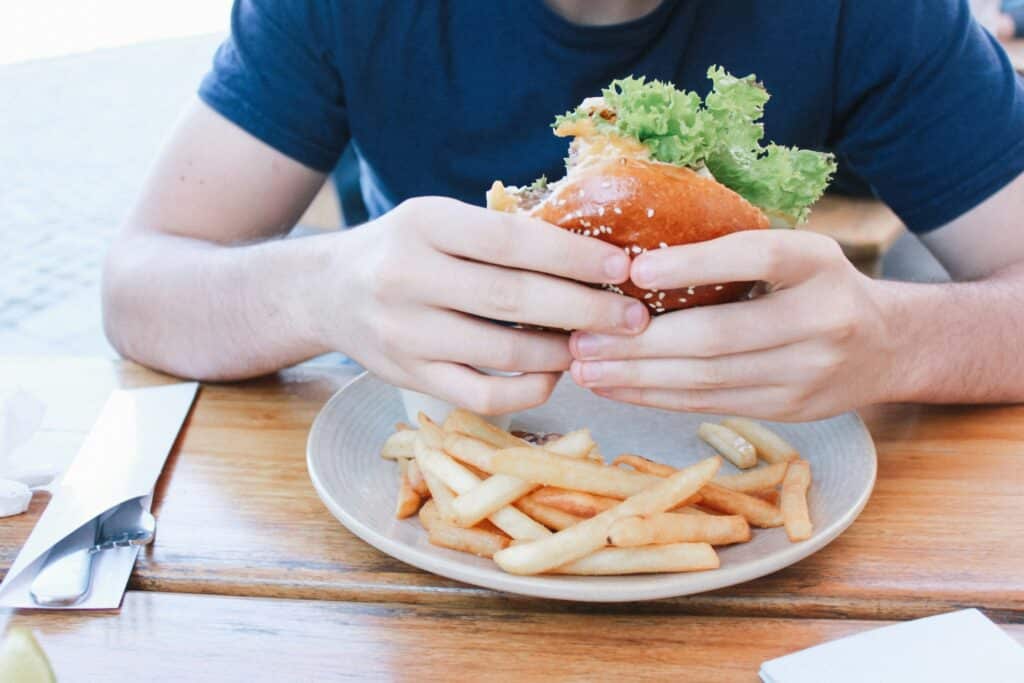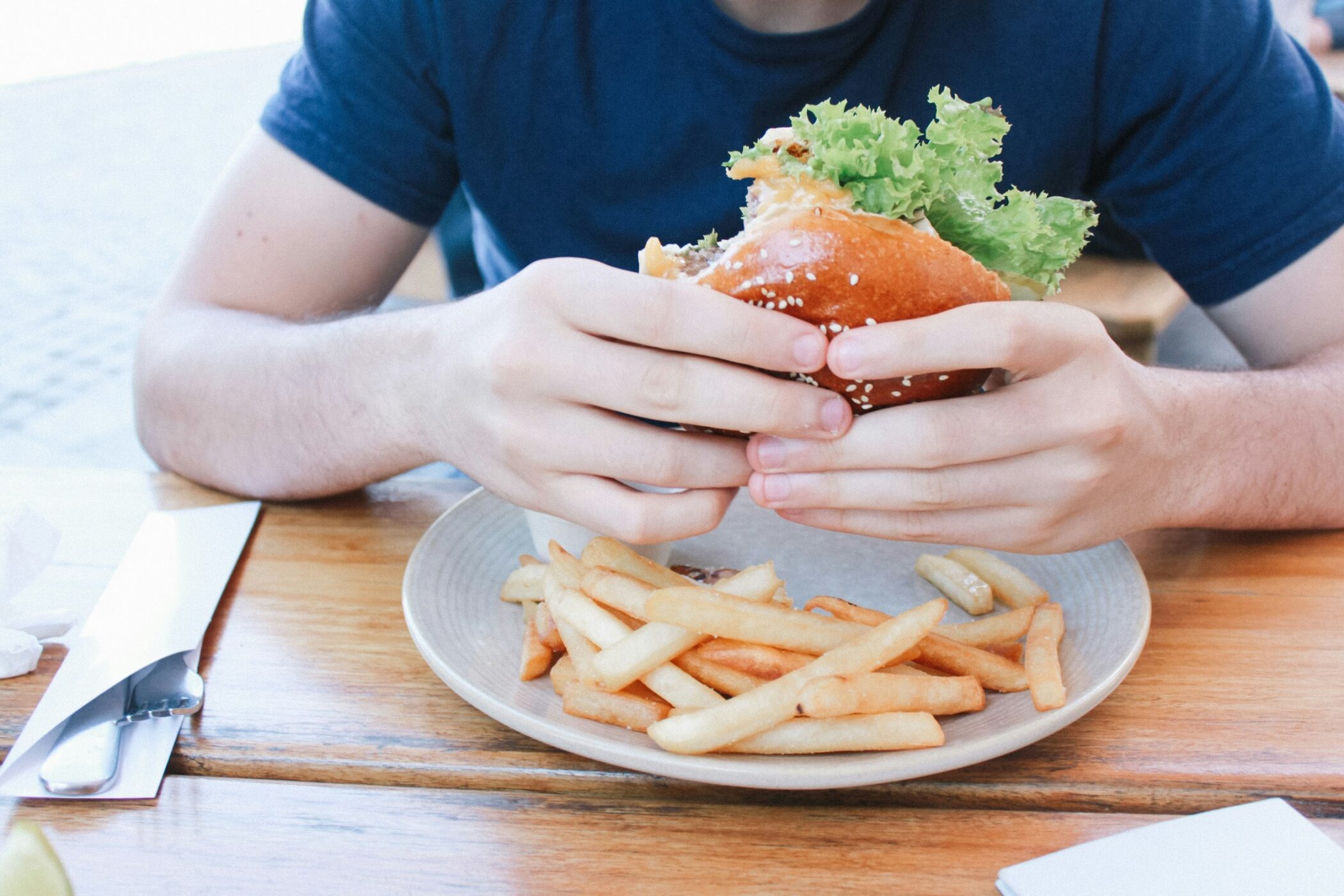
Succeeding in a weight loss meal plan is a common goal for many individuals. However, it’s crucial to prioritize your health along the way. Taking extreme measures may give you results short-term, but can weight loss harm your health?
In the following words, we’ll explore the impact of your diet on your health and the healthiest way to approach weight loss.
Can weight loss harm your health?
Yes, weight loss can harm your health if you don’t do it properly. Extreme diets where you lose weight too fast can lead to muscle loss, a weakened immune system, hormone imbalance, and other issues.
The key to weight loss is to do it safely with proper intake of all the essential nutrients. Failing to do so can sometimes lead to mild or even severe health problems.
Nutrient deficiencies
Drastically reducing your calorie intake can lead to a lack of essential nutrients. That is a common problem with fast and restrictive diets. These diets will usually cause a lack of vitamins, minerals, and other micronutrients necessary for good health. Instead, focus on a diet that includes all the essential ingredients for supporting your health and appearance. If you don’t have the time or knowledge to craft the perfect meal plan, you can always opt for a healthy food delivery service.
Weakened immune system
Your immune system can weaken with a too-low-calorie intake and a lack of nutrients. That increases the likelihood of infections or diseases.
Muscle loss
Rapid weight loss usually leads to losing muscle along with fat. That will influence your physique as more muscle creates a more aesthetic look. But more importantly, it will decrease your metabolic rate. That makes it harder to maintain weight loss long-term.
Electrolyte imbalances
Electrolytes are minerals that carry an electric charge and are essential for various bodily functions. Some diets can cause electrolyte imbalances, which can lead to complications. Some dangers of low electrolytes are fatigue, weakness, and even irregular heart rhythms.
Psychological impact
Unhealthy weight loss methods can have severe psychological consequences. That can include depression, anxiety, and an unhealthy relationship with food.
Hormonal disruptions
Another potential issue that comes with improper diets is hormonal disruptions. Those imbalances can affect your body’s libido, muscle mass, and various other processes.
An extreme weight loss meal plan can severely harm your body. But remember that these negative effects only come with a poor diet. However, when you intake adequate macro and micronutrients, you can effectively lose weight without damaging your body.
What is a healthy way to start losing weight?
Set realistic goals
When starting your weight loss journey, you must set realistic goals. Losing weight too fast can lead to health problems, and it’s not sustainable in the long run. Instead, aim for a steady weight loss of one to two pounds weekly.
Create a balanced eating plan
A good weight loss meal plan will always be balanced with plenty of macro and micronutrients your body needs. Macronutrients include:
- protein;
- carbohydrates;
- fats;
- fiber.
On the other hand, micronutrients include:
- vitamins;
- minerals;
- water.
To create the perfect meal plan, you have to find a balance between these groups. The key is to intake enough of each while still being in a caloric deficit to lose weight.
Mindful eating
Mindful eating is enjoying your meals every step of the way. When preparing your meals, try to do it slowly and notice the food’s texture. When you start eating, thoroughly chew each bite.
Mindful eating will help you to understand your body’s signals. It will tell you when you are full or if you need more. This is an excellent way to enjoy your food and prevent overeating.
Stay hydrated
Drink plenty of water throughout the day. Water will hydrate your body and support various bodily functions like digestion and circulation. It will also help control hunger since you can sometimes confuse hunger with thirst.
Regular physical activity
Regular physical activity is crucial for steady and healthy weight loss. However, you don’t need intense workouts to cut calories. For example, a simple 30-minute walk can burn 150-300 calories. You can also include swimming, jogging, or any other form of aerobic exercise. Aim for at least two to three hours of exercise per week.
Although strength training isn’t necessary for weight loss, it is a great addition to your health and weight loss goals. Strength training will help you maintain and build muscle mass, which is crucial for an aesthetic look.
Portion control
Controlling portion sizes is another huge part of a weight loss plan. You can use smaller plates and bowls to control portion sizes visually. However, remember that different foods have different amounts of calories despite their volume.
For example, one cup of carrots has around 45 calories. One cup of cashews has a staggering 786 calories. Therefore, it’s crucial to know how many calories are in the ingredients you eat. But with a well-balanced meal plan, portion control can be very effective.
Seek support
Consider seeking support from a doctor specializing in weight management or other weight loss professionals. You can get personalized guidance and a plan tailored to your needs. Additionally, you can get emotional support when you are having difficulty sticking to your diet. Of course, surrounding yourself with supportive people can greatly help you persevere in your program.
Monitor progress
Keep track of your progress, but focus on more than just the number on the scale. Your body can sometimes retain more water, causing the number to stay the same or even go up. However, that weight will still drop once your body flushes excess water from your organism.
That’s why it’s crucial to monitor other types of progress. Track your body measurements and energy levels. Once you start tracking those, you will notice that you have much more energy or achieved great fitness goals.
Practice self-care
Take care of your overall well-being. Whenever possible, try getting enough sleep (seven to eight hours). Manage your stress and engage in self-care activities. Good sleep and stress management can positively impact your weight loss efforts.
In summary
Weight loss can positively impact your health as long as you do it properly. Taking extreme diets can lead to muscle loss, weaken your immune system, and cause various physical and emotional issues.
But when you approach weight loss in a healthy and balanced way, you can achieve great results without causing any harm to your overall health.

